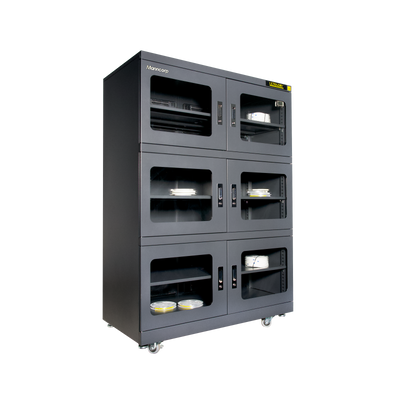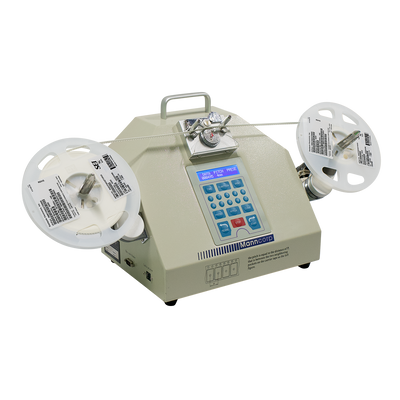The Risks of Cheap Equipment: Dry Boxes
Don’t get fooled by a seemingly good deal. Dry boxes can be a product that lasts for the long-term. By investing in quality equipment, you can avoid a lot of headaches and know that you are supported by a dedicated service team.
Can Equipment Be Too Cheap?
Like with any product, there are dry boxes made well and ones made poorly. Recently, cheaper dry boxes have made a big push in the USA. Customers who are unaware of the risks that can come with these abnormally inexpensive options may be unable to solve their humidity problems. In fact, using this cheaply made equipment may even exasperate the problem.
What Dry Boxes Should and Should Not Do

To avoid having a worse issue with moisture than you began with, it is best to understand the common red flags to look for. Keep in mind these should’s and should not’s when looking to buy:
1. Once the dry box door is opened, the humidity meter should rise.
The main purpose of a dry box should be to provide an environment for your boards that is drier than the environment outside of it. This means, if the door is open, the outside elements should immediately begin effecting the humidity readings of the dry box. If this isn’t happening, there is likely a problem with the cabinet.
2. The humidity percentage inside the machine should not fluctuate widely.
Some cabinets will appear aesthetically identical to a high-quality machine, but have humidity readings that range from 1% - 10% or even higher. A hallmark of a good dry box is stability. You should expect a consistent measurement between 1% and 5% rh.
3. The company supplying the dry box should be willing to provide test reports.
When deciding on the right dry box[es], it is helpful to view reports of how a given machine performs. A major red flag of a company supplying underqualified dry boxes is the inability to produce up-to-date performance charts that demonstrate proper testing is being done.
While companies that offer very-low-cost dry boxes may copy a lot of the appearance and wording from top machinery suppliers, the physical product that arrives at your facility will likely be poor quality.
The Risks for Customers & Suppliers
The true risk these low-quality, cheap equipment providers pose is two-fold. First, they put customers at risk by providing equipment that does not work properly. Product can be damaged, and companies can end up with a loss of revenue. In this way, customers who are taken advantage of by these dishonest providers may end up paying more in the long run.
The other result effects equipment manufacturers like Manncorp, which has been servicing customers for over 50 years, trying to compete with companies who are cutting corners. As the market is suddenly filled with low-cost options that perform poorly, the companies unwilling to reduce quality may be unable to stay afloat. This could eventually eliminate high-quality machinery as an option for customers.
Find the Best Humidity Level for your Product
As we’ve seen, not all dry boxes are created equally. But more than that, not all components and products can withstand the same levels of humidity. For instance, when it comes to storing photography equipment, an ideal range of RH (Relative Humidity) is between 35 and 40%. Lower levels may damage lenses and delicate tools by drying them out.
Other items, however, such as critical components being run through an SMT line, need to have virtually no moisture inside. Otherwise, the product could end up bubbling up in an effect called “popcorning” – or even exploding during the heating process as trapped water tries to expand.
Below is a chart that shows the life expectancy of different components based on RH:

Avoid the Risks of Low-Quality Equipment
By choosing equipment that does not raise red flags, all these risks can be avoided.
Eliminate the possibility of injury and damages by choosing equipment that:
- Properly measures humidity,
- Offers stable readings,
- and is from a reputable source that provides data and follows IPC standards.
To begin researching dry boxes for your business, reach out to the Manncorp team today by calling 215-830-1200 or emailing sales@manncorp.com.
Have a unique application? Learn more about our customization options for dry boxes and other manufacturing equipment.






 Back
Back